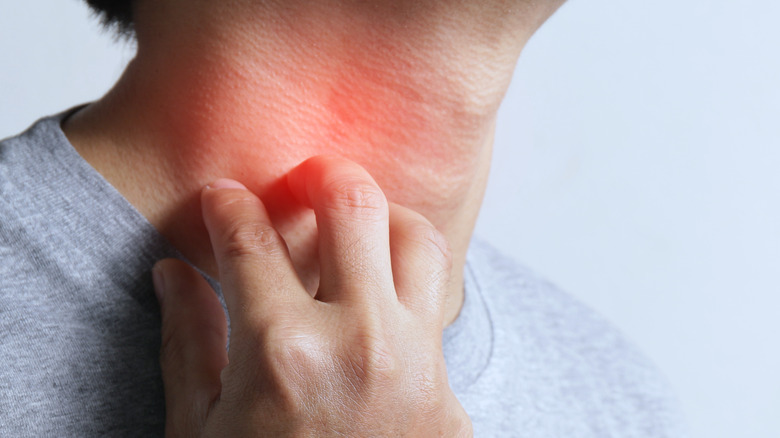Allergies are a growing concern in the UAE due to the unique environmental factors, including extreme weather conditions, high levels of dust and sand, and increasing urbanization. Whether it’s seasonal allergic rhinitis, food allergies, or skin-related sensitivities, residents and visitors alike must take proactive steps to manage their allergies effectively.
This article explores the common causes of allergies in the UAE and provides practical solutions to minimize exposure and manage symptoms effectively.
Common Causes of Allergies in the UAE
1. Dust and Sandstorms
The UAE’s desert environment makes it prone to frequent dust storms, which can trigger respiratory allergies and exacerbate conditions such as asthma and allergic rhinitis. Fine particles in the air can irritate the nasal passages and lungs, leading to sneezing, coughing, and difficulty breathing.
2. Pollen Allergies
Despite its arid climate, the UAE has a variety of trees, grasses, and flowering plants that release pollen into the air, causing seasonal allergies. Common culprits include date palm trees, acacia, and ornamental plants used in landscaping.
3. Mold and Humidity
Air-conditioned indoor environments and high humidity levels in coastal areas contribute to mold growth in homes and offices. Mold spores can trigger allergies and respiratory issues, particularly in poorly ventilated spaces.
4. Food Allergies
The UAE is home to a diverse expatriate population, leading to exposure to various cuisines. Common food allergens include nuts, dairy, shellfish, and gluten. Food cross-contamination in restaurants and food preparation facilities can also pose risks.
5. Air Pollution
Urbanization and increased vehicular emissions contribute to poor air quality, which can aggravate allergies. Pollutants such as nitrogen dioxide and sulfur dioxide can irritate the respiratory system and exacerbate allergy symptoms.
6. Insect Bites and Stings
The UAE’s warm climate supports a variety of insects, including mosquitoes, sandflies, and bees. Insect bites and stings can cause allergic reactions ranging from mild irritation to severe anaphylaxis in sensitive individuals.
7. Perfumes and Fragrances
The use of strong perfumes and scented products is common in the UAE, which can trigger allergic reactions such as headaches, skin irritation, and respiratory discomfort in sensitive individuals.
Solutions for Managing Allergies in the UAE
1. Reduce Indoor Allergens
- Use high-efficiency particulate air (HEPA) filters in air conditioning units to trap dust and allergens.
- Regularly clean and vacuum using HEPA-filter vacuums to reduce dust and pet dander.
- Maintain indoor humidity levels between 30-50% to prevent mold growth.
- Wash bedding, curtains, and carpets frequently to remove allergens.
2. Protect Against Dust and Sandstorms
- Stay indoors during dust storms and keep windows and doors closed.
- Use air purifiers to reduce indoor air pollutants.
- Wear a face mask when outdoors to minimize inhalation of dust particles.
3. Manage Pollen Allergies
- Check pollen forecasts and limit outdoor activities during peak pollen seasons.
- Shower and change clothes after spending time outdoors to remove pollen from skin and hair.
- Keep windows closed during high pollen periods and use air conditioning instead.
4. Be Cautious with Food Allergies
- Read food labels carefully and inquire about ingredients when dining out.
- Carry antihistamines or an epinephrine auto-injector if you have severe food allergies.
- Inform restaurant staff about allergies to prevent cross-contamination.
5. Improve Air Quality
- Reduce exposure to traffic pollution by avoiding heavily congested areas.
- Use indoor plants that purify the air, such as aloe vera and spider plants.
- Avoid smoking and secondhand smoke, as it can worsen respiratory allergies.
6. Prevent Insect-Related Allergies
- Use insect repellents to prevent mosquito and sandfly bites.
- Keep windows and doors screened to prevent insects from entering homes.
- Wear protective clothing when spending time outdoors in areas prone to insect bites.
7. Minimize Exposure to Fragrances
- Opt for fragrance-free or hypoallergenic personal care products.
- Avoid areas with heavy perfume use, such as crowded malls or enclosed spaces.
- Inform colleagues and family members if you have fragrance sensitivities.
Medical Treatments and Remedies
- Antihistamines: Over-the-counter antihistamines can help relieve symptoms such as sneezing, itching, and runny nose.
- Nasal Sprays: Steroid nasal sprays can reduce inflammation and congestion caused by airborne allergens.
- Allergy Shots (Immunotherapy): For severe allergies, immunotherapy can help desensitize the immune system to specific allergens.
- Bronchodilators and Inhalers: Essential for individuals with asthma or severe respiratory allergies.
Lifestyle Adjustments for Allergy Management
- Maintain a Healthy Diet: Eating anti-inflammatory foods such as fruits, vegetables, and omega-3 fatty acids can strengthen the immune system.
- Stay Hydrated: Drinking plenty of water helps flush allergens from the system and keeps airways moist.
- Exercise Indoors: If outdoor allergens trigger symptoms, consider indoor workouts instead of outdoor activities.
- Practice Stress Management: Stress can weaken the immune system and worsen allergy symptoms, so incorporate relaxation techniques like yoga or meditation.
Allergies in the UAE can be challenging to manage due to environmental factors like dust, pollen, and pollution. However, by taking preventive measures and seeking appropriate medical care, individuals can significantly reduce their allergy symptoms and improve their quality of life. Whether it’s making adjustments to your home environment, modifying lifestyle habits, or using medical treatments, managing allergies effectively ensures a healthier and more comfortable life in the UAE.

